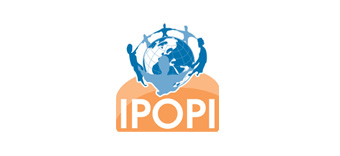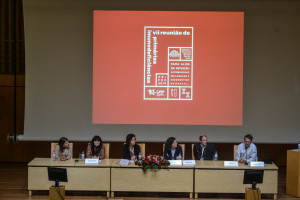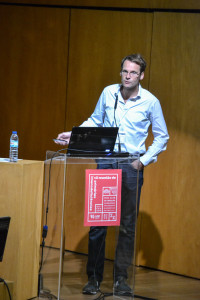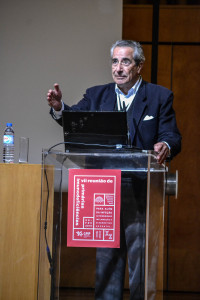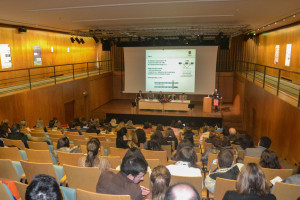March 23, 2016
IPOPI attends GPIP VII meeting
IPOPI was delighted to participate in the Portuguese physicians group for primary immunodeficiencies (GPIP)’s 7th meeting on February 26th in Porto. The meeting was attended by 120 participants and focused on the relation between auto-inflammation, auto-immunity and primary immunodeficiencies. The conference ended with a session dedicated to Severe Combined Immunedeficiency (SCID) calling for the inclusion of SCID newborn screening in Portugal.
The 7th GPIP meeting took place in the main hall of the public library “Biblioteca Almeida Garrett” in central Porto and started with a presentation from Dr Manuel Vilanova (Biomedic Sciencies Institure of Oporto) and Dr João Farela Neles (Lisbon Children’s Hospital) on specific cases of inflammatory complications of the bowels linked to primary immunodeficiency (PID).
The second session focused on autoimmunity and primary immunodeficiencies and started with a very motivational talk by Dr António Coutinho (Gulbenkian Institute of Science) who argued that medicine evolves from the bedside to the bench and not from the bench to the bedside as a way to encourage physicians to identify relevant questions to ask their patients. Dr Coutinho co-authored with Dr Magda Carneiro-Sampaio (Brazil) the paper ‘Tolerance and autoimmunity: lessons at the bedside of primary immunodeficiencies’ in 2007. Dr Susana Lopes da Silva (Northern Lisbon Hospital Center) highlighted that autoimmunity complications can often be the clinical demonstration of a PID and illustrated this with several case studies. She also pointed out that the autoimmunity is not yet seen as warning sign for PIDs.
IPOPI supports efforts to start SCID Newborn Screening in Portugal
After lunch the session on SCID started with a presentation from Dr Isabel Esteves (Northern Lisbon Hospital Center) which included the first incidence data for the country. In Portugal there is an incidence of 1 case of SCID per 48.700 live births probably due to a genetic mutation, 65% of which observed in females, thus reporting a lower x-linked ratio than in the majority of other countries.
60% of all reported SCID babies in Portugal have died and after diagnosis the average age of transplantation is 8 months. After transplantation 13% of babies don’t survive due to post-surgery complications. Dr Esteves concluded that there is an urgent need to shorten the period between diagnosis and transplantation and that this can be accomplished by screening all babies for SCID at birth.
The second speaker of the session was Dr Olaf Neth (Virgen del Rocio Hospital, Seville, Spain) who recently conducted a SCID newborn screening pilot study in Spain and shared details of his findings. SCID newborn screening is cost-effective especially if the costs of Bone Marrow Transplantation before and after the age of 3 months are compared: after 3 month of age the cost almost doubles.
Last but not least participants welcomed Dr Laura Vilarinho, head of the Portuguese neonatal screening programme, who went over the necessary steps to add a new condition to the national screening panel.
The meeting allowed for the first steps and discussions on SCID newborn screening in Portugal and further efforts will be needed in cooperation with all relevant stakeholders, particularly the physicians with an interest in PID and the patient groups. APDIP, the Portuguese PID patient group, and IPOPI took part in the discussion showing their commitment to be involved in the necessary steps forward. IPOPI also recently provided a position statement for the need to implement SCID newborn screening in the country.
